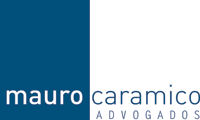Presentation
By Jayme Vita Roso*
I would like to welcome everybody who, connected or not with the legal milieu, is interested in the importance of the practice of law as a way of improving democracy. I, as I believe many are, am weary of the fact that this noble profession is interested solely in the content of the rule of law. An Olympian attitude, like a panoramic view from the Parthenon over Athens, is more for Tibetan monks or followers of Gandhi’s passivity than the contemporary world requires. And such world makes requirements especially upon lawyers, who would feel the need to hold firm and decided social positions relative to society if only they were to pay a bit more regard to the provisions of their Statutes or their Code of Ethics.
And what does legal auditing have to do with this new world?
Legal auditing will become, if befittingly instituted, a powerful instrument for the prepared, competent, ethical and practicing lawyer; the pendulum that will regulate the interests and passions of the contemporary world and show, unequivocally, that it is possible for human beings to survive. Legal auditing is not lenient, it is not compromised by the interests of economic, financial, political or religious groups. Legal auditing does not enter into secret agreements, nor does it rely upon prominent social figures to tidy up or give a legal face to crime or to illicit civil acts.
Legal auditing has the courage to say, to affirm, to sustain and to write down that the charging of fees by the hour should and needs to change, because “it rewards inefficiency, it makes clients suspicious and it may be unethical"1 . Scott Turow, the author of these thoughts, is a lawyer who practices in Chicago and is the author of the acclaimed book "Presumed Innocent" among other works. Even enlightened Americans, even American lawyers can no longer put up with the conduct of many professionals who think that money is the best vehicle through which to satisfy their needs and whims. And some lawyers have already created societies to combat colleagues who exaggerate in the number of hours spent and the corresponding invoices.
We are living in a new world that, in the face of successive financial scandals, in the face of administrative fraud in large private and public corporations, in the face of organized crime that has risen up as a supranational power, above all through drugs, in the face of endemic vertical and horizontal corruption in distinct sectors of the social strata, in the face of the abusive, reiterated and compact destruction of the environment for mercantile interests, this new world is not content with the idle chatter of governments, or ombudsmen, or the audit courts or enervating and asphyxiating bureaucracy.
I believe that, by opening up the doors to reality, legal auditing will show that it is possible to send the demons back to the devil, so that, as Marie Darrieussecq emphatically affirmed: “Seule le mediocrité est insupportable”2 .
Basque, French and European, she fearlessly faced up to the theme of the death of a four year old child through a narrative of the pain, the regret and the mourning that the mother suffered and experienced.
Legal auditing is the accomplice of courage.
And, in this spirit, another young writer of Indian origin, living in New York, Kiran Desai, tracing the destiny of millions of people who abandon their homes, their families, their country, risking atrocious humiliations in order to live in the underworlds of the large cities, like the one in which she lives, similar to Toronto, London, Paris, São Paulo or Delhi, dared to write “What reason is there to love a life that is nothing but a simulacrum of life?”3.
Are we lawyers, forging a life based on clichés or on stereotypes or on standards, really living? So, by rethinking the practice of law, we enter into the fascinating, welcoming, almost monastic life of legal auditing not only to earn enough money to guarantee our survival, but also to reach out to others, to the world, to the times in which we live, to the country, to the city and, above all else, to ourselves.
I close by summoning and appealing to lawyers, both men and women, to fully understand the benefits that legal auditing will bring to the exercise of their professions, infusing it with oxygen and, who knows, purging it of stuffiness and attitudes that are at variance with out sacred calling.
____________
1TUROW, Scott. The billable hour must die. ABA Journal. Chicago: American Bar Association, Aug 2007. From such article, his final considerations: “If I had only one wish for our profession from the proverbial genie, I would want us to move toward something better than dollars time hours. We have created a zero-sum game in which we are selling our lives, not just our time. We are fostering an environment that doesn’t provide the right incentives for young lawyers to live out the ideals of the profession. And we are feeding misperceptions o four intentions as lawyers tha disrupt our relationships with our clients. Somehow, people are as smart and dedicated as we are can do better.”
2DARRIEUSSECQ, Marie Au diable les demons. LÉxpress International. Paris: Groupe Express, 23rd-29the Aug 2007, No 2929. p. 64-66.
3DESAI, Kiran. Terre Indienne. LÉxpress International. Paris: Groupe Express, 16th-22nd Aug 2007, No. 2928. p.64-66
__________________

*Attorney at Jayme Vita Roso Advogados e Consultores Jurídicos
